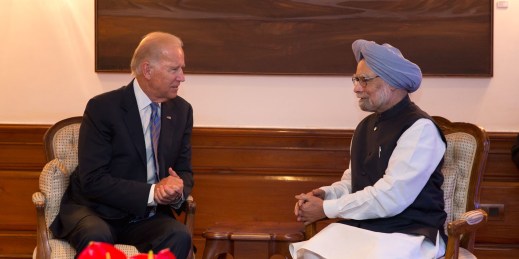
A year ago, as Boko Haram, the violent jihadist group from Nigeria’s north, expanded its operations, I argued that even though the Nigerian government had launched what seemed to be a serious military offensive, it continued to reject the sort of deep and serious reform needed to undercut support for extremism. Hence the United States should avoid offering anything other than modest, indirect help. Since then, Nigeria’s security situation has eroded further. In the words of Navi Pillay, the U.N. high commissioner for human rights, Boko Haram has become “increasingly monstrous.” Approximately 500,000 Nigerians have fled the fighting between government […]


